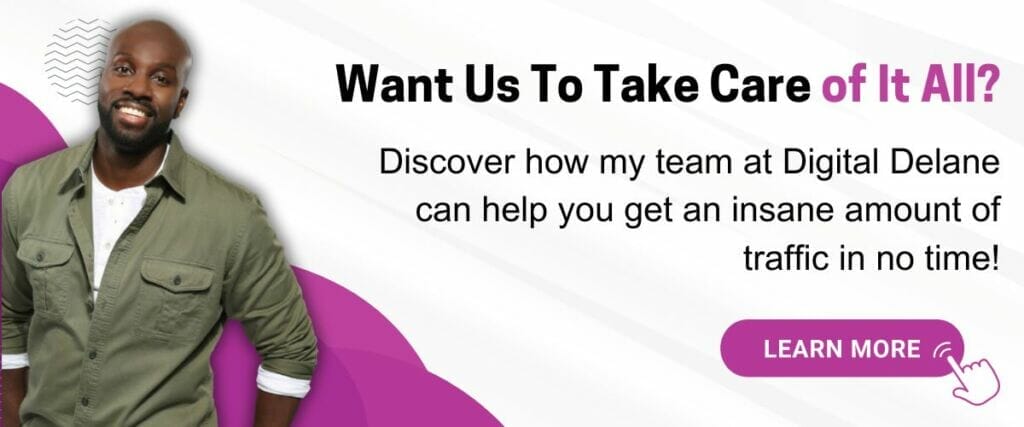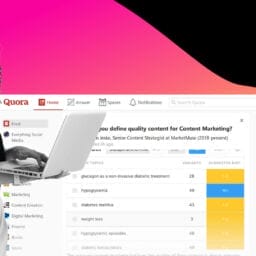Personalization in Digital Marketing: A Guide to Understanding Your Customer’s Needs
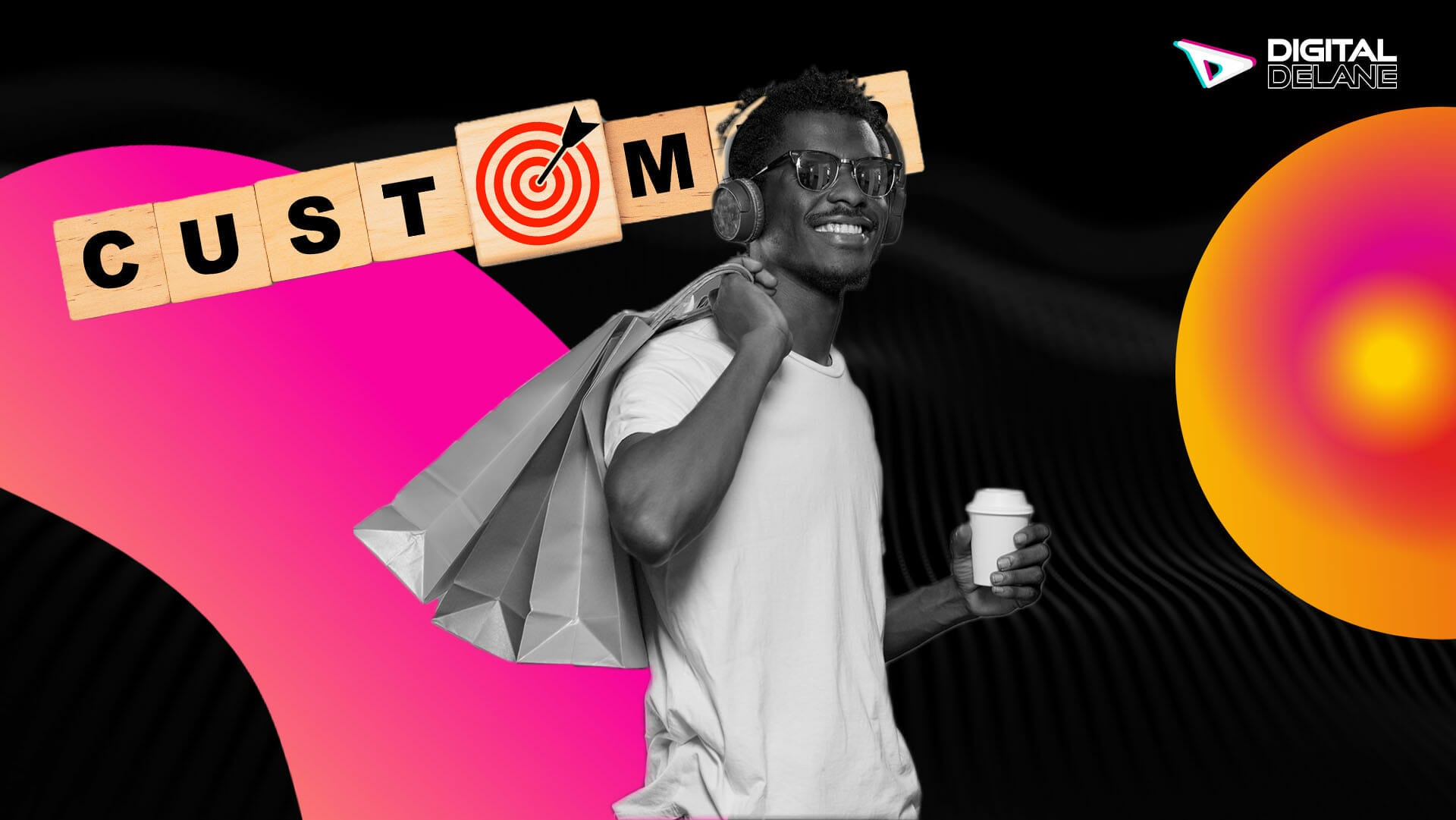
In the ever-evolving digital marketing landscape, staying ahead of the curve is not just an option; it’s necessary for businesses seeking to thrive in today’s competitive arena. Personalization is one undeniable game-changer that has revolutionized how brands connect with their audiences. It’s not a passing trend but rather the future of customer engagement.
In this blog, we’ll embark on a journey to explore what lies ahead for personalization in digital marketing, delving into the strategies, benefits, and insights that can empower your business to excel. So, if you’re ready to unlock the potential of personalization and witness its profound impact on customer loyalty, engagement, and your bottom line, read on.
What is Personalization in Digital Marketing?


Personalization in digital marketing is the practice of tailoring marketing efforts and content to individual preferences and behaviors, creating a more relevant and engaging experience for each customer. It uses data and technology to deliver targeted messages and recommendations, enhancing customer satisfaction and boosting conversion rates.
What is the purpose of personalization in Digital Marketing?
In the world of digital marketing, personalization has a clear mission: to make every customer’s experience special. Imagine a friendly shopkeeper who knows your preferences and recommends products just for you. That’s what personalization does online. It tailors marketing messages, content, and product suggestions to match your unique likes and needs. This means you get emails and offers that really speak to you, making you more likely to click, buy, or engage with the brand. It’s like having a personal shopping assistant in the digital world. But it’s not just about boosting sales today; it’s about building lasting relationships and loyalty.


When you consistently get what you like, you’re more likely to stick with a brand. Plus, personalization helps businesses adapt to the ever-changing digital landscape and stay one step ahead of the competition. In a nutshell, personalization is the secret recipe for better online marketing, where customers get what they want, and businesses thrive through stronger connections and more sales.
It encompasses various elements such as,
- Demographic personalization (customizing messages based on factors like name, location, and age).
- Behavioral personalization (using data from website visits, purchase history, and search behavior to provide relevant content).
- Contextual personalization (adapting content based on factors like time of day, device type, and location).
How does Personalization help to engage customers in your business?
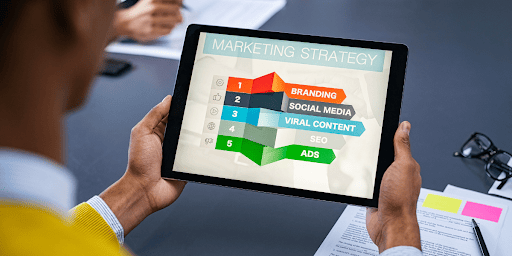

Personalization is like tailoring a unique experience for each customer, making them feel special. It’s all about understanding what they like and need. When a business gets this right, it’s like offering a personal shopper who suggests products or content just for you.
This makes customers more likely to do things like buy something, click on an email, or explore more of what you offer. It’s not just about the present; it’s about keeping customers happy and coming back for more. Plus, personalization is like having a secret helper that reduces the stress of making choices when there are so many options.
In today’s world, where data helps businesses understand customers better, personalization also gives you a competitive edge. It’s like making friends who tell others about your business, creating a ripple effect of more customers.
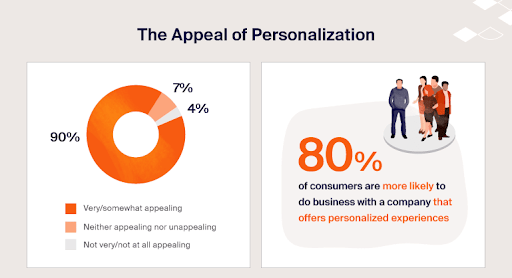

In simple terms, personalization is a smart way to make customers happy, boost sales, and keep them coming back, and it’s crucial in today’s business world.
What are the challenges to personalizing customer engagement ?


Creating personalized customer experiences in online marketing is a powerful strategy, but it’s no walk in the park. Firstly, we’ve got to be super careful with customer data – it’s their personal info, and they want it kept safe and sound. Keeping that data accurate and up-to-date is like chasing a moving target. Plus, it’s often scattered across different systems, making it a puzzle to put together. It is important to know about challenges and Improve Your Customer Experience.
Those fancy algorithms for personalization? Well, they need some real tech smarts. And don’t forget about crafting unique content for different customer groups – it’s like tailoring a suit for each person. Finding the right balance between personalization and being too nosy is a bit like walking a tightrope.
If you’ve got loads of customers, doing all this manually is like trying to juggle a hundred balls at once. So, you need some automation to help out. Choosing the right tech tools is another puzzle, and testing what works when everyone sees something different can be a head-scratcher.
Customer preferences change like the weather, which means you’ve got to adapt quickly. If you’re a smaller business, you might not have a big budget for all this fancy stuff, and you’ve got to be mindful of different cultures and laws.
Lastly, you’ve got to meet customer expectations, which can be a high bar, and keep them interested for the long haul. Measuring how well all this personalization is working isn’t always straightforward either.



In a nutshell, personalizing online marketing is a bit like solving a complex puzzle. It involves technology, creativity, and a deep understanding of your customers. When you get it right, though, it can make your customer relationships stronger and your marketing efforts more effective. It’s a challenge, but it’s worth it!
Here are specific Personalization Techniques to increase customer engagement
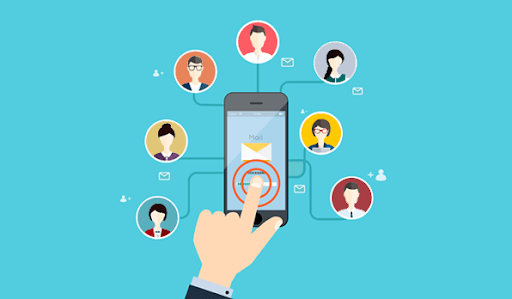

Personalization techniques in digital marketing are essential to increase customer engagement and drive better conversion rates. Leveraging data-driven insights and advanced technologies, businesses can create highly personalized experiences for their customers. Here’s an enhanced version of the original content with more technical terms and added statistics:
Data Collection and Analysis:
Effective personalization begins with robust data collection and analysis. Harness data from diverse sources such as web analytics, CRM systems, social media APIs, and email interactions. According to a study by McKinsey, companies that leverage data-driven personalization see a 15-20% increase in marketing ROI on average.
Segmentation:
Segmentation is the cornerstone of personalized marketing. Employ advanced clustering algorithms to categorize your audience into distinct segments based on demographics, behavioral patterns, and psychographics. In a recent survey by Adobe, 63% of marketers reported that segmentation was a top priority for their marketing strategies.
Personalized Content:
Craft personalized content using techniques like predictive analytics and machine learning. Employ dynamic content blocks that adapt in real-time to individual preferences. A report by Epsilon found that personalized email campaigns deliver 6x higher transaction rates than non-personalized ones.
Email Personalization:
Incorporate recipient names, product recommendations based on past purchase history, and personalized content suggestions in your email marketing campaigns. Research by Campaign Monitor indicates that personalized subject lines can boost email open rates by 26%.
Website Personalization:
Implement AI-powered website personalization to dynamically alter content based on user behavior. Show related products, recently viewed items, or tailored landing pages to increase engagement. According to Evergage, 88% of marketers report measurable improvements due to website personalization.
Recommendation Engines:
Leverage sophisticated recommendation algorithms, such as collaborative filtering and content-based filtering, to provide highly relevant product recommendations. Amazon’s recommendation engine is estimated to drive 35% of its total sales.
Personalized Ads:
Harness retargeting and display ads, utilizing data from users’ browsing history and interests. A study by Dynamic Yield found that personalized ads can increase conversion rates by 10% or more.
Leverage demographic targeting and retargeting on platforms like Facebook and LinkedIn. An eMarketer study revealed that 74% of consumers get frustrated when website content, including ads, appears irrelevant to their interests.
Mobile App Personalization:
Enhance the mobile app user experience with personalized content, recommendations, and in-app messages. Research by Localytics indicates that personalized push notifications can increase user engagement by up to 3x.
A/B Testing:
Continuously optimize personalization strategies through A/B testing to fine-tune messaging and content. A well-executed A/B test can lead to a 49% increase in conversion rates, as reported by Crazy Egg.
Personalized Customer Journeys:
Map out personalized customer journeys with marketing automation and tailored content at different touchpoints. Research by Statista indicates that personalized customer journeys can lead to a 20% increase in sales.
Feedback and Surveys:
Collect valuable customer feedback through surveys to refine personalization strategies further. In a survey by Qualtrics, 89% of digital marketers reported that customer feedback influenced their decisions on personalization strategies.
Privacy Compliance:
Prioritize compliance with data privacy regulations, such as GDPR or CCPA, to build trust with customers. Non-compliance can result in hefty fines, with GDPR fines reaching €114 million in 2020.
Effective personalization, grounded in data and compliance, can substantially elevate customer engagement in digital marketing, ultimately driving customer satisfaction and loyalty.
Do you want to grow faster? Schedule a free consultation call with an expert
Personalization Marketing Example


This case study explores how Hype Co., a forward-thinking e-commerce brand, harnessed the power of personalization to skyrocket its customer engagement rates.
The Challenge
Before implementing personalization strategies, Hype Co. faced a common challenge: stagnant customer engagement. Their email open rates hovered around 15%, and website bounce rates were a concern at 60%. The brand needed a fresh approach to captivate and retain its audience.
The Personalization Strategy


Hype Co. initiated an extensive personalization initiative, leveraging data-driven insights to customize and enhance customer interactions. Here’s the methodology they employed:
- Segmentation: Hype Co. segmented their customer base based on browsing history, purchase behavior, and demographics. This allowed them to send hyper-targeted email campaigns.
- Product Recommendations: Leveraging AI algorithms, Hype Co. started suggesting products based on individual preferences, resulting in a 30% increase in click-through rates.
- Dynamic Website Content: The brand dynamically altered website content for each visitor, showcasing products and offers aligned with their interests. This reduced bounce rates by 20%.
The Results


- The impact of personalization was nothing short of remarkable:
- Email open rates shot up by 45%.
- Click-through rates surged by 38%, translating to a 25% increase in conversion rates.
- Website bounce rates plummeted to just 40%.
- Customer retention improved by 20%.
Final Thought
- Individualized customer engagement is the future of digital marketing, promising enhanced customer loyalty and improved financial outcomes for businesses. By tailoring interactions to suit individual preferences, companies can achieve higher levels of engagement, from personalized greetings to tailor-made offers. To flourish in today’s fiercely competitive marketplace, adopting effective personalization strategies is essential. Embrace the power of personalization to transform your digital marketing efforts and step into the era of personalized digital marketing.


